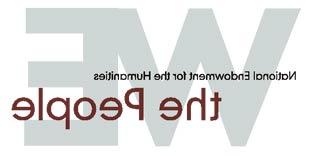Lexington and Concord
Introduction
Irate over colonists' reaction to the Coercive Acts, King George III declares that Parliament must take a tougher stand against this "most daring spirit of resistance and disobedience to the law." Parliament overwhelmingly agrees: Massachusetts is in a state of rebellion, and several other colonies are aiding and abetting her insubordination.
General Thomas Gage, commander of British forces in America and recently appointed governor of Massachusetts, is determined to quell the unrest. He exerts his authority over all aspects of Massachusetts' public life, from meeting hall, to courthouse, to dockside. Regulars are everywhere, an ever-present sign of Boston's humiliation.
Sensing the town's rising temperature, Gage decides to defuse New England's military arsenal. On 1 September, he sends 260 soldiers to seize 250 barrels of gunpowder from the powder house at Charlestown. Colonists, convinced they are under attack, raise a powder alarm, which mobilizes thousands of local militia, some as far away as Connecticut. Gage fortifies Boston against possible attack, while the Provincial Congress establishes a network of alarm riders and rapid-response militia units. Many fear that civil war is imminent and pray, "Heaven will avert the storm!"
An astute general, Gage needs to understand the lay of the land. In January, he issues orders for Captain John Brown and Ensign Henry de Berniere. The spies are to travel west through Suffolk and Worcester Counties and take sketches of the countryside, noting tactical opportunities and obstacles. Surveying Middlesex County in March, Brown and Berniere discover a store of weapons and supplies in Concord. Just twenty miles from Boston, and a meeting place of the suspended—and thereby illegal—Provincial Congress, Concord is the site of Gage's next strike. Reinforcing his decision is a secret letter from Lord Dartmouth, the Secretary of State for the American Colonies, who encourages Gage to arrest Whig leaders, confiscate the rebels' weapons, and invoke martial law.
On the night of 18 April, British grenadier and light infantry companies gather in Boston's Back Bay. They are ferried across the Charles River basin to Cambridge, and from there they begin their march into Concord. Paul Revere and others sneak out of Boston and ride through the countryside sounding the alarm. When the Regulars arrive in Lexington, minutemen are waiting. A bloody confrontation erupts. After the British push on, eight colonists lie dead on the green; ten more are wounded. In Concord, the Regulars are met by an even greater force, which repels them at North Bridge. The Regulars, in retreat, are pursued by a growing militia force, drawn by widely rippling alarms. In time, both sides accuse each other of bloody butchery.
To prevent Gage's troops from making any more forays into the countryside, 20,000 provincials lay siege to Boston. From the safety of its meeting place in Watertown, Dr. Joseph Warren, president of the Provincial Congress in John Hancock's absence, says what is on the minds of many. To "defend Our Wives and our Children", he declares, each Massachusetts town should enlist men to form an army. But Gage soon strikes a deal: he issues permits to pass in and out of Boston so long as Bostonians first surrender their weapons. It seems further bloodshed is averted, at least for the time being.
Whig leaders try to piece together what happened in Lexington and Concord. They take depositions from all eyewitnesses, including the testimony of the Midnight Rider. Gage begins his own account of how "this unfortunate Affair has happened." In the ensuing battle for public opinion, not only throughout the colonies but also in England, the Bostonians win. Dispatching their report by a fast schooner, they edge out Gage by two weeks. The first account Parliament will receive and the British press will publish announces, the militia pleads innocent.
Rowe's Revolution
"Last night the Grenadiers & Light Companies belonging to the several Regiments in Town were ferry'd over Charles River & landed on Phipps Farm in Cambridge from whence they Proceeded on their way to Concord, where they arrived early this day. On their march they had a Skirmish with some Country People at Lexington.... "
Diary of John Rowe,
19 April 1775




![Pamphlet, General Gage's Instructions, 22 February 1775, [Boston, 1779]](../database/images/gage_1_th.jpg)








